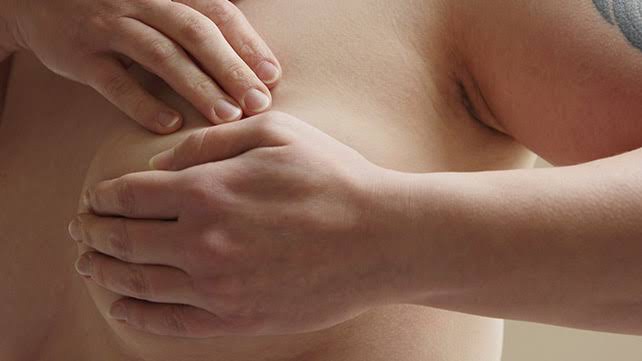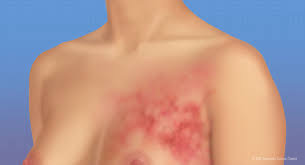Breast cancer is a complex disease with multiple contributing factors. While the exact causes of breast cancer is not fully understood, several risk factors have been identified:
1. Genetics:
Inherited mutations in certain genes, such as BRCA1 and BRCA2, significantly increase the risk of developing breast cancer. However, most cases of breast cancer are not hereditary.
2. Age: The risk of breast cancer increases with age, with the majority of cases diagnosed in women over 50. However, breast cancer can occur at any age.

3. Hormonal Factors: Estrogen and progesterone, hormones that regulate the menstrual cycle and pregnancy, can influence breast cancer risk. Factors such as early menstruation, late menopause, and never giving birth or having a first child after age 30 can increase risk.
4. Family History: A family history of breast cancer or ovarian cancer can increase the risk of developing breast cancer, especially if the relatives were diagnosed at a young age.
5. Lifestyle Factors: Certain lifestyle choices, such as excessive alcohol consumption, smoking, being overweight or obese, and lack of physical activity, can increase the risk of breast cancer.
6. Radiation Exposure: Previous radiation therapy to the chest area, particularly during childhood or adolescence, increases the risk of breast cancer later in life.
7. Dense Breast Tissue: Women with dense breast tissue have a higher risk of developing breast cancer compared to women with less dense breast tissue.
While these factors may increase the risk of breast cancer, many women diagnosed with breast cancer do not have any identifiable risk factors. Early detection through regular screening and awareness of symptoms are crucial for improving outcomes.
Effects of Breast Cancer:
Breast cancer is a serious disease that can have profound physical, emotional, and social effects on individuals and their families. Some of the effects of breast cancer include:
1. Physical Effects: Breast cancer and its treatments, such as surgery, chemotherapy, radiation therapy, and hormone therapy, can cause a range of physical side effects. These may include fatigue, pain, nausea, hair loss, lymphedema (swelling in the arm or hand), and changes in appearance.
2. Emotional Impact: A breast cancer diagnosis can lead to a wide range of emotions, including fear, anxiety, sadness, anger, and depression. Coping with the uncertainty of the disease, treatment side effects, and changes in body image can be challenging for many patients.
3. Financial Burden:
The cost of breast cancer treatment, including medical expenses, medications, and supportive care, can place a significant financial burden on patients and their families. This burden may be compounded by lost income due to missed work or reduced productivity.
4. Relationships: Breast cancer can affect relationships with partners, family members, friends, and colleagues. Communication challenges, role changes, and caregiving responsibilities can strain relationships and social support networks.
5. Long-Term Effects: Some breast cancer survivors may experience long-term effects of treatment, such as infertility, premature menopause, bone loss, heart problems, and cognitive changes.

Despite these challenges, many breast cancer survivors find strength and resilience throughout their journey. Support from healthcare providers, support groups, family, and friends can help individuals navigate the physical, emotional, and social effects of breast cancer and improve quality of life. Early detection, advances in treatment, and ongoing research offer hope for better outcomes for individuals affected by breast cancer.
Pingback: Breast cancer remedies - SimplExplainer
Pingback: Solutions for Breast Cancer - SimplExplainer